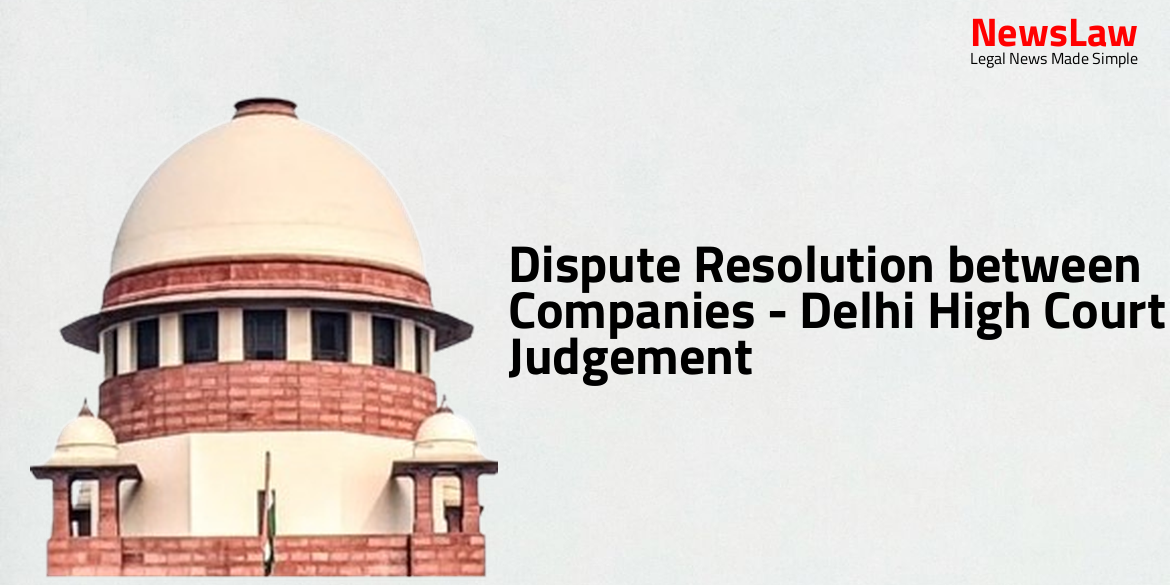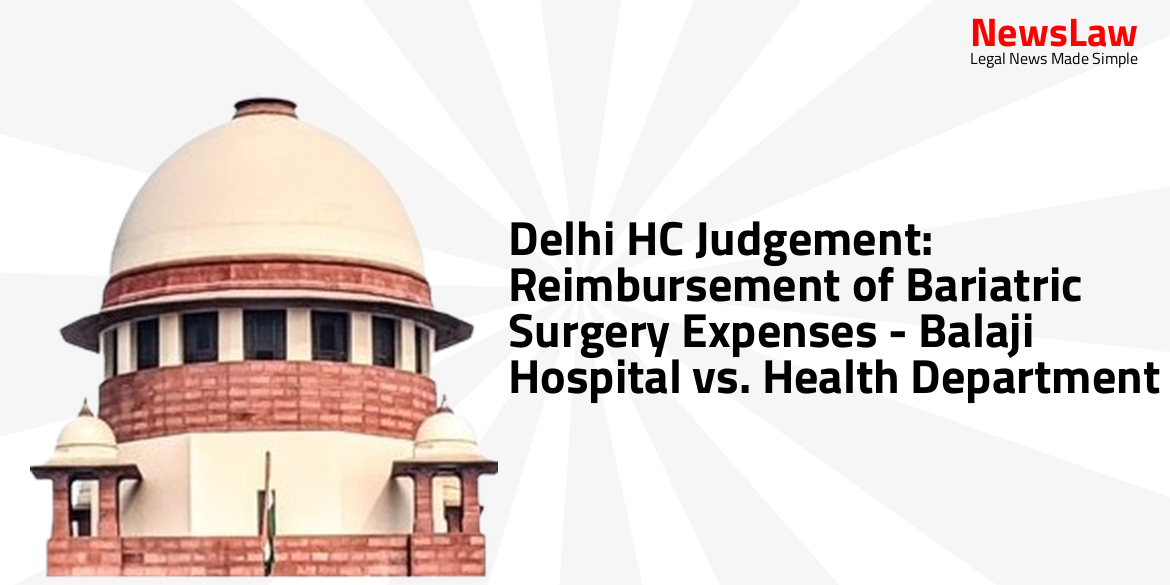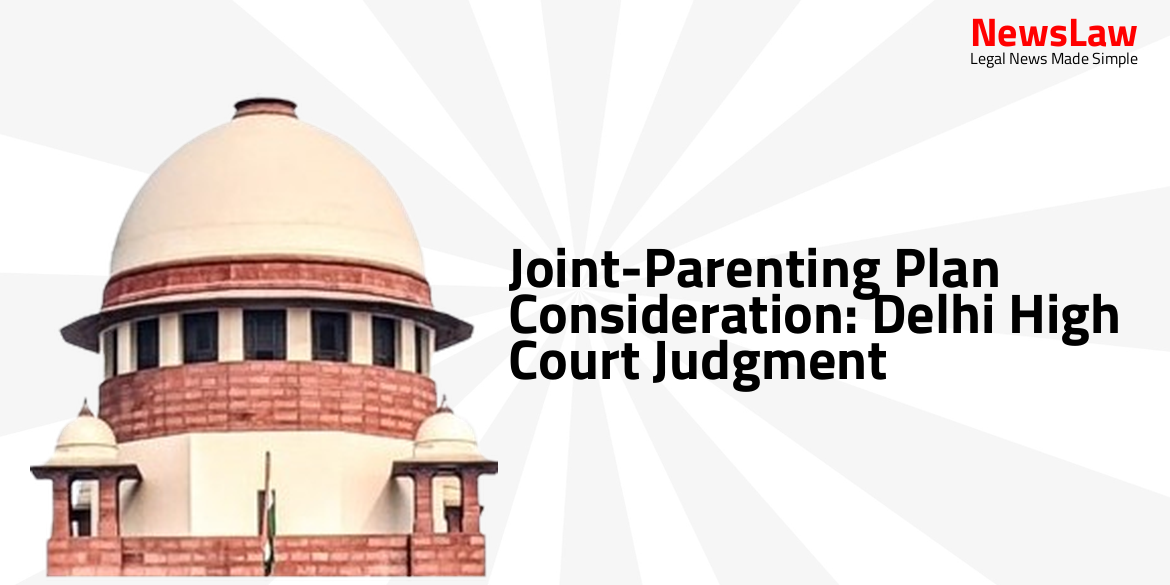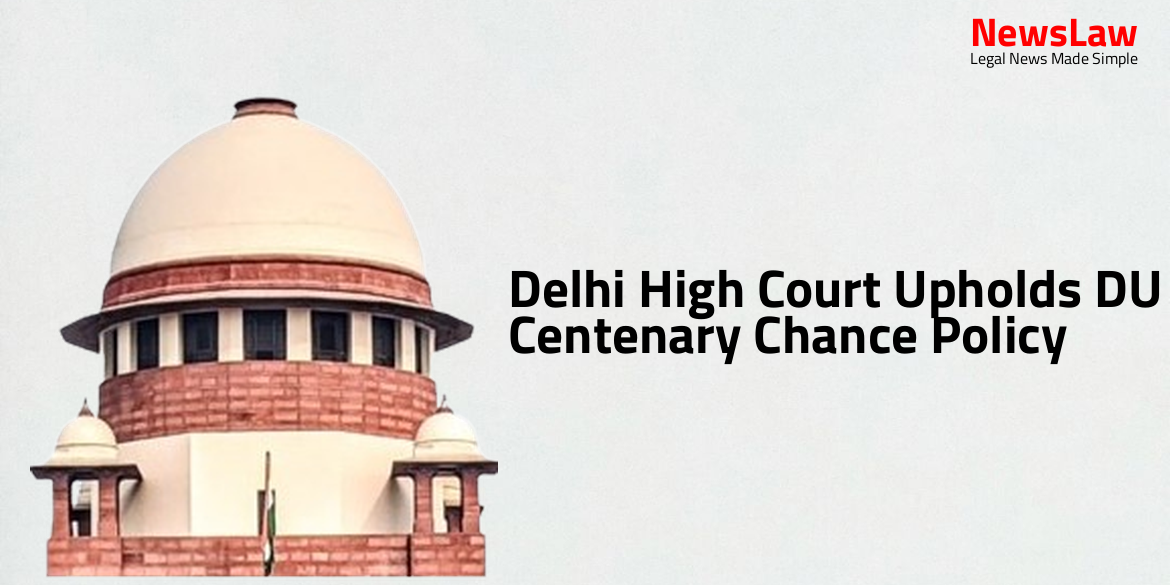In a recent ruling by the Delhi High Court, a significant dispute resolution case between two companies has been addressed. The judgement sheds light on the necessity of genuine disputes and the appropriate legal pathways for resolution. Let’s delve deeper into the details of this case and the Court’s directives.
Facts
- Despite reminders, the respondent company failed to settle its liability, leading to a demand letter from the petitioner dated 14.01.2014.
- Winding up proceedings were initiated as the outstanding amount remained unpaid by the respondent company.
- Bills/invoices worth Rs. 17,67,099/- were raised by the petitioner against purchase orders, with an agreed interest rate of 18% per annum for delayed payment.
- The accounts between the parties show a running account with orders exceeding Rs. 58 Lacs placed for equipment supply.
- Respondent company alleged that petitioner inflated invoices and supplied excess materials in bad faith, leading to a halt in further payments.
- A statutory legal notice dated 23.01.2014 was sent by the petitioner, to which the respondent company did not reply.
- Respondent company’s reply dated 25.07.2015 denied the existence of a debt payable to the petitioner under Sections 433 and 434 of the Act.
- Written purchase orders dated 11.04.2012 were issued by the respondent company for scaffoldings, which were supplied by the petitioner on 24.04.2012.
Arguments
- It is argued on behalf of the petitioner that the respondent has been routinely overcharging the petitioner company.
- The petitioner claims that the respondent owes them Rs. 14,62,995/- on account of overcharging and is liable to refund 25% of the total amount billed.
- The petitioner argues that the debt claimed by the respondent is disputed and that they have a genuine counterclaim against the amount claimed.
- The petitioner suggests that instituting a winding-up proceeding is not the appropriate way to enforce the debt and recovery of the same.
- The petitioner requests to be accorded the benefit of Section X for withdrawing the present petition and filing in the appropriate commercial court for adjudication of their claims.
- It is emphasized that the Company Court cannot adjudicate on disputed facts and that such cases should be handled in a commercial suit before the appropriate forum.
Analysis
- The Company Court must determine if the grounds for dispute appear substantial.
- The Court is obligated to assess if there is a genuine dispute regarding the claimed debt and not conduct a full trial at that stage.
- If the creditor’s debt is genuinely disputed on substantial grounds, the court should reject the petition and allow the creditor to pursue the claim through proper legal channels.
- The disputes raised by the parties should be bona fide and not a mere tactic to avoid payment.
- The Company Court must ensure that the grounds of dispute are not used as a deceptive tactic to deprive a creditor of their rightful claim.
- For a creditor to prefer an application for winding-up for discharge of liability in the case of a substantial dispute as to liability, certain considerations need to be taken into account.
- The exclusion of time during which a former civil proceeding was pending should be counted from the day the proceeding was instituted to the day it ended.
- A plaintiff or an applicant resisting an appeal is deemed to be prosecuting a proceeding, according to the explanation provided in the section.
- Misjoinder of parties or causes of action is considered a cause of a similar nature with defect of jurisdiction.
- The definition of a substantial and genuine dispute is clarified to be one that is bona fide and not spurious, speculative, illusory, or misconceived.
- The present petition is without merit.
- Any observations made will not prejudice the rights of the parties.
- Petitioner should approach the appropriate civil court for adjudication of its claim regarding time spent during the winding up petition.
- Petitioner can claim condonation of delay as per law if required.
- Contentions raised by the petitioner should have been addressed before the Civil Court.
Decision
- The petitioner has been granted liberty to institute proceedings before the appropriate Commercial Court
- The petitioner can seek condonation of delay for the period spent during the winding up proceedings
- The present company petition is dismissed as withdrawn
- Pending applications, if any, are disposed of
- No opinion on the merits of the case is expressed in this judgment
Case Title: M/S NEWAGE SCAFFOLDINGS PVT. LTD., Vs. M/S PARAMOUNT INFRAVENTURE PVT. LTD. & ORS. (2024:DHC:3953)
Case Number: CO.PET.-303/2014



